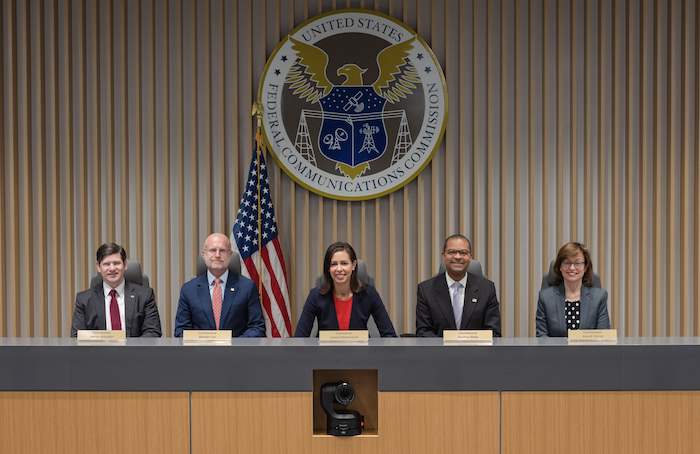UPDATE There was strong reaction to the FCC’s decision this week to allow AT&T’s (NYSE: T) FirstNet to use unassigned spectrum in the 4.9 GHz band “as part of its nationwide public safety broadband network in a way that protects incumbent operations,” said the agency in its eighth Report & Order on the band. Currently, the spectrum is licensed to local public safety groups.
The Commission’s action would transfer control of 50 MHz to the FirstNet Authority (FNA) through a nationwide overlay license to be assigned to a band manager. The manager would strike a sharing arrangement with FNA. AT&T CEO John Stankey had lobbied FCC Commissioners for FirstNet gaining control of the portion of the 4.9 GHz band.
A coalition formed by T-Mobile (NASDAQ: TMUS), UScellular (NYSE: USM), Verizon (NYSE: VZ), the Competitive Carriers Association, the Major Cities Chiefs Association, the National Sheriffs’ Association and the Edison Electric Institute opposed the decision. The Coalition for Emergency Response and Critical Infrastructure (CERCI) had hoped to persuade the Commission to give public safety users direct access to the band, instead of routing the band through FirstNet, Inside Towers reported.
Reacting to the vote, CCA President/CEO Tim Donovan said the association was disappointed by the decision “to grant access to the 4.9 GHz band to FirstNet and, by extension, AT&T. This move raises concerns about long-term local control of important public safety communication resources and represents an anti-competitive spectrum opportunity for AT&T.”
CERCI plans to fight the decision in court. CERCI Coalition Kenneth Corey stated: “Just as AT&T profits from commercial use of Band 14 via FirstNet, it will do the same with the 4.9 GHz band. Regrettably, the FCC felt it was more important to gift AT&T with $14 billion in free spectrum for commercial use than to heed the concerns of those on the front lines of public safety communications.”
The value of the 50 MHz of spectrum in play is reported to be worth between $3 billion and $14 billion, depending on power levels used, according to the Brattle Group, an economics consultancy hired by CERCI. NewStreet Research (NSR) notes the decision makes it available to AT&T for exclusive commercial use at no cost.
T-Mobile and Verizon didn’t “push as hard as they might have at the FCC or in Congress for several reasons,” according to NSR Policy Advisor Blair Levin. “First, as they both have deals pending at the FCC, they do not want to engage in a battle that might anger Rosenworcel or Carr. Second, they think their side will win in court,” he writes in a client note.
NSR had predicted the matter would end up in court. Levin predicts CERCI will argue that state and local public safety organizations have strong interests in the current allocation. He also believes they’ll assert that the FCC has not done the necessary work to have a plan to avoid harmful interference with existing users.
An appeals process could take a year. The decision also sets up a battle in Congress, Levin asserts, as federal law requires Congress to determine whether to reauthorize the FirstNet Authority by 2027.
By Leslie Stimson, Inside Towers Washington Bureau Chief





Reader Interactions